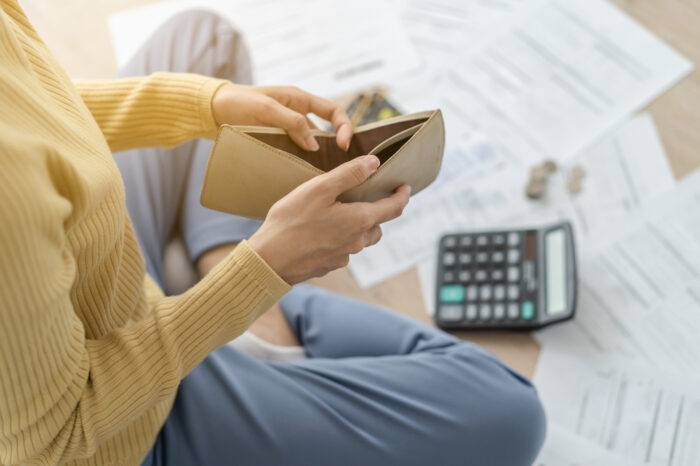
A total of 46% who’ve been hit with an emergency cost in the last 12 months had to borrow money to pay for it, with 15% using a credit card, 7% stretching an overdraft and 4% taking out a loan. Buy now pay later agreements and store cards were relied on by 3% of borrowers.
Only 40% of the 2,000 respondents surveyed by Hargreaves Lansdown could cover a financial ‘nasty surprise’ out of their own savings. While the average cost of those unexpected payouts totalled £788, one in 20 shelled out £5,000 or more.
Further, men were less likely (37%) than women (44%) to have the savings pot to cover a random expense, which averaged £833 for men and £730 for women.
The youngest demographic (18 to 34-year-olds) were most likely to encounter an unplanned expense, with 67% experiencing one in the last 12 months. Younger people are the most likely (69%) age group to need a helping hand to pay for it too, compared to 43% of 35 to 54-year-olds and just 24% of those aged over 55.
Younger people and parents feel the force of one-off payments
The reasons for the increase in younger people’s need to borrow was put down to a lack of spare income and a lack of experience – making it more difficult to predict big expenses.

How life insurance can benefit your health and wellbeing over the decades
Sponsored by Post Office
To compound matters, younger people also experienced the highest cost to cover compared to other age groups – with an average of £979, which is £307 more than over 55s.
Hargreaves Lansdown suggested the resources to cover one-off payments has understandably been hampered by the cost-of-living crisis, writing “one in four people have eaten into their savings because of rising prices, and one in 20 have emptied their accounts.”
‘More nasty surprises lurked around the corner’ in last 12 months
Sarah Coles, head of personal finance, Hargreaves Lansdown, said: “There have been more nasty surprises lurking around the corner in the past year – with 54% of people hit with an unexpected cost out of the blue in the past 12 months. On average, they’re setting us back £788 each, but one in eight people forked out more than £2,000, and one in 20 spent £5,000 or more. Almost half of people are having to borrow to cover the cost.
“The number of expenses out of the blue has been growing. In October, only 46% of people said they hadn’t had these costs in the previous year – compared to 54% six months ago. Part of the problem is how we’ve been trying to cut our costs as the price of everything rises.”
Coles added: “Foregoing routine maintenance and repair – whether it’s your car, your home or your pet – means small niggles don’t get solved until they’ve turned into bigger problems. Another issue has arisen as we get used to higher prices: if our direct debit for our energy bill has gone up, we may think we’re covering the higher cost. However, if it hasn’t gone up enough, we could be set for a shock bill.”
